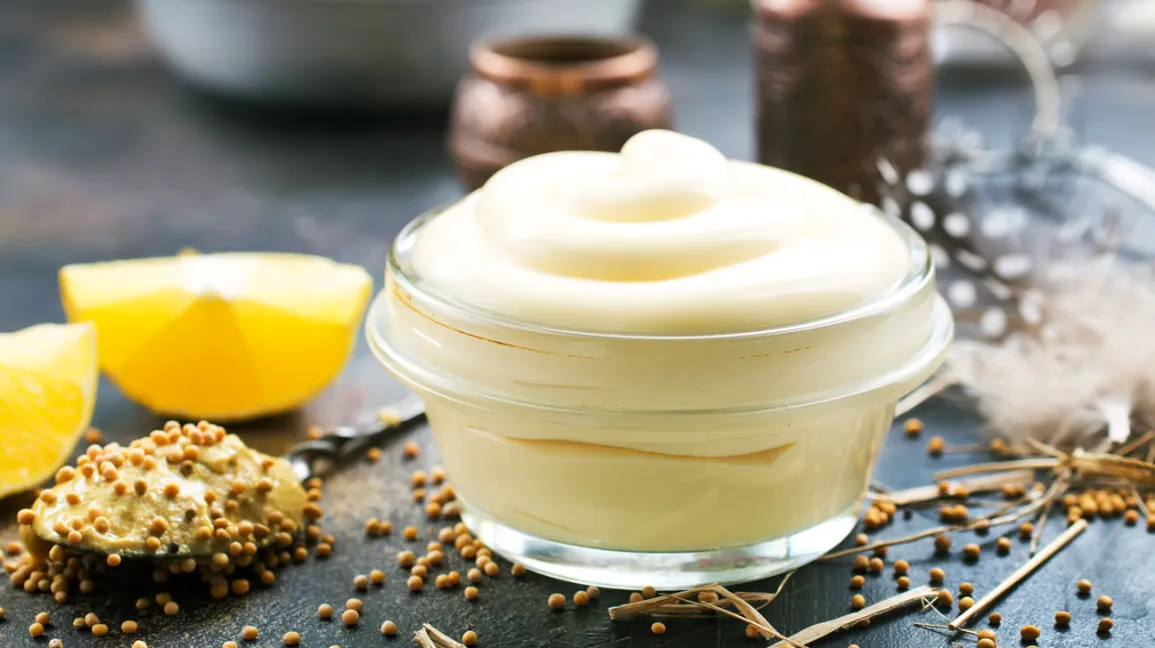Is Mayo Dairy? Unveiling the Truth Behind Mayonnaise and Dairy Ingredients
In the world of dietary preferences and allergies, the question “Is mayo dairy?” holds significant importance. Understanding the true nature of mayonnaise and its ingredients is essential for making informed dietary choices. This article dives deep into the topic to clarify misconceptions and shed light on whether mayo contains dairy or not.
Mayo Ingredients:
Mayonnaise, a creamy and versatile condiment, has been a staple in various culinary creations. At its core, mayo comprises a blend of ingredients that contribute to its smooth texture and rich flavor. Key components include eggs, oil, vinegar, and seasonings. These elements work harmoniously to create the signature creamy consistency that mayo is known for.
Dairy in Mayonnaise?
One of the prevalent myths surrounding mayonnaise is the belief that it contains dairy products. However, it’s important to dispel this misconception. Traditional mayo recipes do not include any dairy ingredients. Instead, the creamy texture is achieved through the emulsification of eggs and oil, resulting in a luscious spread that is dairy-free.
Dairy-Free Mayonnaise Alternatives:
For individuals with lactose intolerance or dairy allergies, the availability of dairy-free alternatives is a welcome relief. The rise of dietary awareness has led to the creation of dairy-free mayo options. These alternatives cater to those who seek the creamy goodness of mayo without the presence of dairy products. Plant-based ingredients such as soy, aquafaba (chickpea brine), and various vegetable oils are commonly used to craft these dairy-free versions.
Mayo Variations:
Beyond the classic recipe, a variety of mayo options are available to suit different preferences and dietary needs. From low-fat and light versions to innovative flavored varieties, the mayo market offers choices that cater to diverse tastes. Even among these variations, the absence of dairy ingredients remains a constant. Whether you opt for a zesty chipotle mayo or a tangy lemon-infused one, you can enjoy the flavors without worrying about dairy content.
Reading Labels:
When it comes to purchasing store-bought mayonnaise, reading ingredient labels is a crucial practice. Learning to decipher these labels empowers consumers to make informed choices. While traditional mayo recipes exclude dairy, it’s wise to be vigilant about other additives that may inadvertently introduce dairy components. Familiarize yourself with the ingredients commonly used in mayo production and check for any unexpected dairy-related entries.

Cross-Contamination Concerns:
For individuals with severe dairy allergies, the question of cross-contamination in factory settings might arise. While mayo itself is dairy-free, there could be instances where manufacturing facilities handle both dairy and non-dairy products. If you’re highly sensitive to dairy, it’s advisable to look for mayo brands that clearly indicate allergen information on their packaging. This proactive approach ensures you can enjoy mayo without any worries.
Health Benefits of Dairy-Free Mayo:
Embracing dairy-free mayo can offer several benefits beyond catering to dietary restrictions. For individuals following vegan diets, dairy-free mayo is a versatile condiment that adds creaminess to dishes without compromising their principles. Moreover, those with lactose intolerance can savor the taste of mayo without experiencing discomfort. By choosing dairy-free options, you align with your dietary goals and preferences while enjoying the same delicious flavors.
Addressing Dietary Preferences:
The diversity of dietary preferences, from vegan and paleo to keto, has prompted mayo manufacturers to cater to a broader audience. Regardless of your chosen dietary path, you can find dairy-free mayo options that align with your lifestyle. Whether you’re whipping up a plant-based sandwich or adhering to a low-carb regimen, dairy-free mayo allows you to savor your favorite dishes with confidence.
Myth Busting:
In the world of food-related myths, the notion of mayo containing dairy has persisted. However, armed with the knowledge gained in this article, you can confidently debunk this misconception. Mayo is dairy-free by nature, with its creamy texture achieved through the emulsification of eggs and oil. By dispelling this myth, you’re equipped to make accurate food choices and educate others about the truth behind mayonnaise.
FAQs about Mayo and Dairy
Q: Is mayo dairy-free?
A: Yes, mayo is typically dairy-free. It’s made from ingredients like eggs, oil, and vinegar, with no dairy components.
Q: Can lactose-intolerant individuals have mayo?
A: Absolutely! Since mayo doesn’t contain dairy, it’s safe for those with lactose intolerance.
Q: Does vegan mayo contain dairy?
A: No, vegan mayo is dairy-free. It’s crafted from plant-based ingredients, excluding any dairy components.
Q: Are there dairy-containing variations of mayo?
A: Traditional mayo recipes do not contain dairy. Variations rarely include dairy; however, it’s essential to check labels.
Q: How can I identify dairy in mayo labels?
A: Look out for ingredients like milk, cream, or cheese. Though rare, some flavored or specialty mayos might have dairy additives.
Q: What’s the difference between mayo and dairy-based dressings?
A: Mayo is dairy-free and egg-oil based, while dairy dressings often contain milk or cream for their creamy texture.
Q: Are there mayo brands specifically for dairy-sensitive people?
A: Some mayo brands cater to allergen concerns, including dairy allergies. Look for labels indicating allergen information.
Q: Is there a risk of dairy cross-contamination in mayo?
A: While mayo itself is dairy-free, cross-contamination can occur in shared facilities. Opt for brands with clear allergen labels.
Q: Can I use dairy-free mayo in cooking and baking?
A: Yes, you can use dairy-free mayo as a versatile ingredient in various recipes, adding creaminess without dairy.
Q: Is mayo a good option for vegans?
A: Yes, vegan mayo is dairy-free and suitable for vegans. It’s an excellent alternative for adding richness to plant-based dishes.
Conclusion:
The question “Is mayo dairy?” has led us on a journey to uncover the reality behind this common misconception. Traditional mayo recipes, anchored in the harmonious blend of eggs, oil, vinegar, and seasonings, do not contain dairy ingredients. Dairy-free mayo alternatives cater to those with dietary restrictions, while variations and flavors offer something for everyone. Armed with this knowledge, you can confidently enjoy the creamy deliciousness of mayo without dairy-related concerns, making your culinary experiences even more enjoyable.




